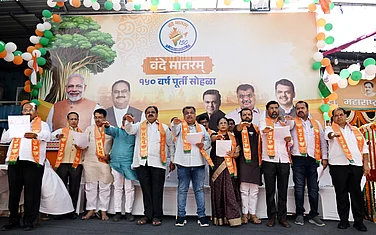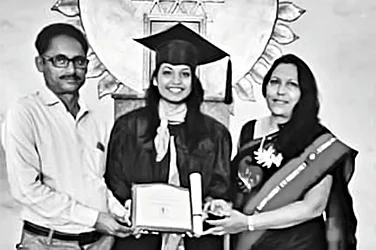Contrary to the perception in the Valley that life is at a standstill in the Budgam area of Kashmir where Section 144 is strictly adhered to, things are normal in this central Kashmir district. The coronavirus scare and the mandatory closure of schools haven’t affected daily life. Even after some of the many people who had gone to Iran and Saudi Arabia for pilgrimage returned to the district, Budgam has not witnessed a single COVID-19 positive case so far. Many believe that Budgam’s handling of COVID-19 suspects would determine the spread of coronavirus in the Valley. So far, the district’s record is irreproachable and it shows on the streets—there is an air of indifference, overloaded buses rush about, people throng hospitals and other medical centres freely, marketplaces are crowded.
This open disregard to the clear and present danger of coronavirus worries Muzaffer Ahmad, an epidemiologist. Working from his chamber in the Budgam Chief Medical Officer’s office, Dr. Ahmad has been tirelessly locating people who have come from China, Iran, and now Saudi Arabia, for the past two months. Such is his unflagging energy that he visits every village, ferrets out people who have returned from the affected countries and asks them to go into isolation.
“We got information that some students have returned from China. According to norms we had to find and isolate them,” says Ahmad. In a remote village of Budgam he found three students who had returned from a city near Wuhan—the epicentre of the outbreak in China. The students were surprised to see doctors knocking their doors. “We told them to isolate themselves and asked them about their activities. Fortunately, they readily cooperated,” he says.
Soon, the doctor and his team heard of seven students who had returned from China. “I rushed to their houses. They, however, had been quarantined in Delhi and had no signs of any disease after that,” he says.
Since February, Ahmad has tracked down over 150 persons who travelled to different affected countries. Most of them, he says, are in isolation. Out of the 150, four were tested after they complained of cough and fever; those tests are negative. On March 16, an elderly person who complained of breathlessness was referred by Ahmad to the Sher-e-Kashmir Institute of Medical Sciences for tests and quarantine. “He had come from Saudi Arabia some time ago. We were tracking him,” he says.
But a deliberate flouting of protocol at the epidemiologist’s office by people returning from abroad scares employees most. Without masks, or proper adherence to prescribed hygiene, they enter the room, sit around and breezily narrate their travel history. “This alarms us most,” says an employee. Ahmad, however, is made of stronger stuff. “When people reveal that they have come from Iran and China. I listen to them carefully. There is no need to panic. Our aim is that people shouldn’t hide their travel history and we shouldn’t lose track of them,” he stresses. “We are a nodal agency in the district to tackle the disease and that is why people come to us. We cannot tell people with a travel history to affected countries not to visit us,” he says, his voice hardening.
In these trying times, Ahmad is an outlier. A doctor at Aga Syed Yousuf Hospital in Budgam recently shouted at a patient who revealed her visit to Iran a short time back, asking her to keep a safe distance from him. Actually, this doctor and Ahmad’s staff are not without justification—without protective gear, an acute lack of masks and potential carriers of coronavirus milling around them, they can consider themselves at great risk.
“We have asked the government for masks and protective gear and they have promised us a quantity in the coming days,” Ahmad smiles now. He himself wears an ordinary surgical mask, instead of the more secure N95 mask, while attending people who have visited affected countries.
Steadfast in his duty and largely indifferent to his own safety, Ahmad’s family, especially his children, are a worried lot. They have been repeatedly calling him to take more care. “I tell them I do my job and the rest I leave everything to god,” says Ahmad. This conscientious doctor doesn’t even switch off his phone. “I am available any time. I have to be. Those who are in isolation and in quarantine look for our advice and we have to be available for them and others,” he says.
ALSO READ
By Naseer Ganai in Budgam


























